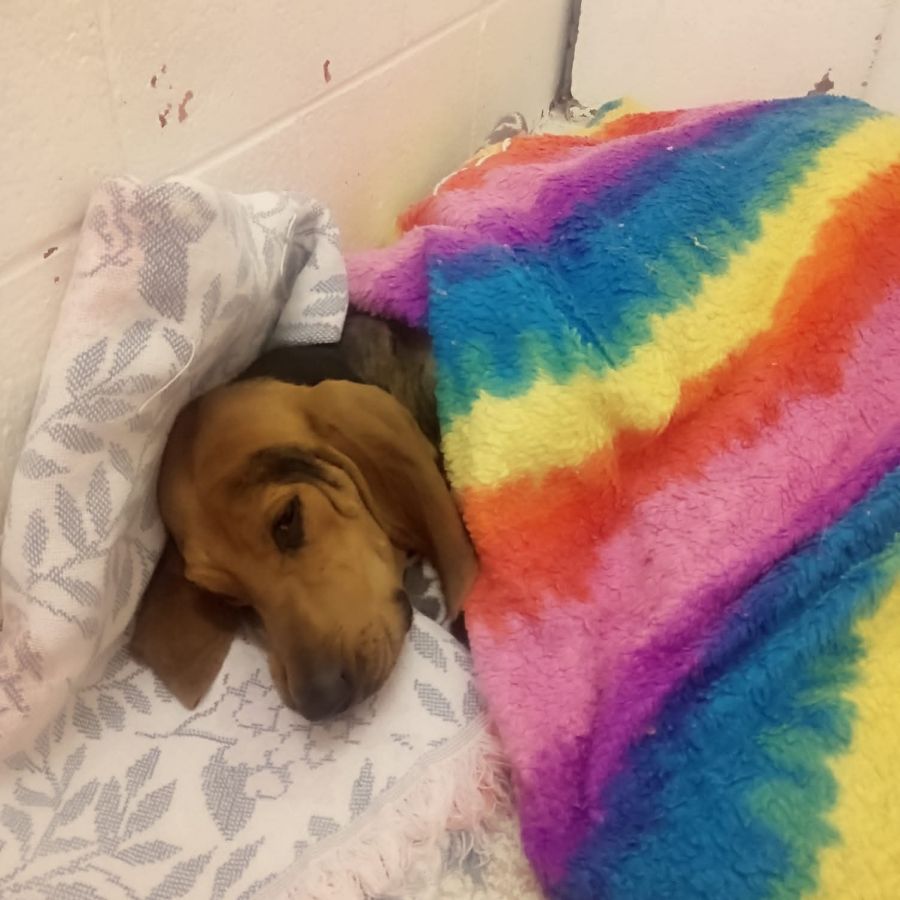Milan, NM
Pet Surgery in Milan, NM
Compassionate, Expert Surgical Care to Support Your Pet’s Health
Safe, Skilled, and Comprehensive Veterinary Surgical Services
At Airport Animal Clinic, we are proud to offer high-quality pet surgery services for cats and dogs in Milan, NM, and the surrounding areas. Whether your pet needs a routine procedure like spay and neuter surgery or a complex orthopedic repair, our experienced veterinary team provides every patient with skilled, compassionate care using advanced surgical techniques and modern monitoring technology.
From pre-operative evaluation to post-operative recovery, we are here to ensure your pet receives the best care at every stage.

Comprehensive Veterinary Surgery at Airport Animal Clinic
Our hospital is equipped to perform a wide range of surgical procedures on-site. Unlike many clinics, we rarely have to refer out, which means you can rely on the team your pet already knows and trusts. Our veterinarians bring years of surgical experience to each case, and we tailor every procedure to meet your pet’s individual needs.
Soft Tissue Surgery
Soft tissue surgeries are some of the most commonly performed procedures in general practice. These include surgeries on the skin, organs, and internal systems that don’t involve bones or joints.
Common soft tissue surgeries include:
Tumor and mass removals
Surgical removal of growths to prevent discomfort, diagnose potential issues, and support long-term health.
Bladder stone removal
Eliminates painful bladder stones that can cause infections or blockages, helping restore normal urinary function.
Wound repair
Cleans and sutures traumatic injuries like cuts or bites to promote healing and reduce the risk of infection.
Gastrointestinal surgery
Treats digestive emergencies such as blockages or foreign body ingestion to relieve pain and restore GI health.
Spay & Neuter
Routine procedures that prevent unwanted litters and reduce risks of certain diseases and hormone-related behaviors.
Orthopedic Surgery
If your pet is dealing with a bone, joint, or ligament issue, our team is trained to provide high-quality orthopedic surgery to help restore function and relieve pain. These procedures are often essential for active pets, seniors with mobility problems, or those suffering from injuries.
We offer surgical treatments for:
Fractures and broken bones
Surgical repair of broken bones to restore function, reduce pain, and promote proper healing and mobility.
Cruciate ligament ruptures (CCL tears)
Stabilization of torn knee ligaments to reduce pain and prevent long-term joint damage.
Luxating patella (kneecap dislocation)
Corrective surgery to realign the kneecap and prevent painful dislocations during movement.
Hip or elbow dysplasia support
Surgical and medical management of joint abnormalities to reduce pain, improve mobility, and slow progression of arthritis.
Each case begins with a full physical exam and diagnostic imaging, followed by a customized surgical plan and post-operative rehabilitation guidance.

Safety, Monitoring, and Post-Operative Care
Your pet’s safety is our top priority. Before any surgery, we perform a thorough pre-surgical exam and bloodwork to ensure your pet is healthy enough for anesthesia.
During surgery, we use advanced monitoring equipment to track:
- Heart rate
- Oxygen levels
- Blood pressure
- Temperature and respiration
After surgery, we provide pain management tailored to your pet’s size and medical history. We’ll also walk you through everything you need to know for at-home recovery — because healing doesn’t stop when you leave the clinic.
FAQs About Pet Surgery
Will my pet be in pain after surgery?
We use pre- and post-operative pain medications to keep your pet as comfortable as possible. Most pets recover well and show significant improvement within a few days.
How long is recovery after surgery?
Recovery depends on the type of surgery. Routine procedures like spaying/neutering heal in 10–14 days, while orthopedic surgeries may take several weeks with restricted activity.
Is anesthesia safe for my pet?
Yes. We tailor our anesthesia protocols based on age, size, and health status and closely monitor your pet throughout the procedure to ensure safety.
When is the best age to spay or neuter my pet?
We generally recommend spaying or neutering around 5 to 6 months of age, though this can vary based on breed, size, and health. Your veterinarian will help determine the best timing for your individual pet.
Can my pet eat before surgery?
For most surgeries, your pet should fast (no food) for 8–12 hours beforehand. Water is usually allowed. We’ll provide detailed instructions prior to the procedure.
What should I expect when I bring my pet home after surgery?
Your pet may be groggy, sleepy, or less active than usual for the first 24–48 hours. Keep them calm, limit physical activity, and follow all medication and feeding instructions provided by our team.
How do I care for my pet’s incision site?
Check the surgical site daily for swelling, redness, or discharge. Prevent your pet from licking or chewing the area by using an e-collar or recovery suit if needed. Avoid bathing your pet until cleared by your veterinarian.
Can my pet be around other animals after surgery?
We recommend keeping your pet separated from other animals during the initial recovery period, especially for the first few days. This helps reduce stress, prevents accidental injury, and allows the incision to heal properly.
We understand how much your pet means to you — and we’re honored to be part of their care. Our veterinary team combines skill, compassion, and communication to ensure your pet’s surgical experience is as smooth and stress-free as possible.
Veterinary Services
Schedule an Appointment Today!
Whether you’re new to the area or simply looking for a veterinary hospital you can count on, we invite you to discover what makes us different. We’re here to support your pet’s health through every stage of life, and we’d be honored to be part of your journey.
